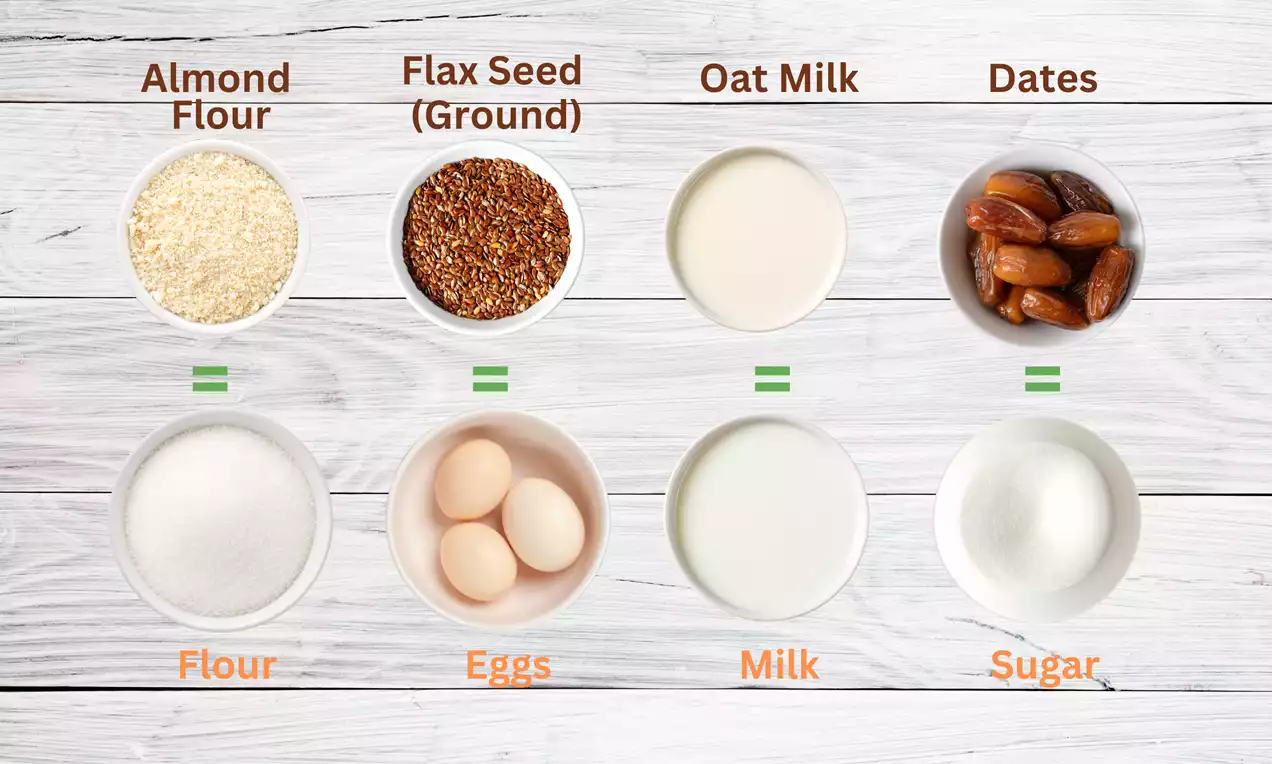
Ultimate Guide to Vegan Baking
Vegan baking can seem tricky. You need to replace eggs, sugar, milk and any other animal-based products in traditional recipes. But once you learn what you can swap in, it becomes easier to bake up vegan treats.
What can be used instead of eggs in baking recipes? This question is not only a matter for vegans. Even when it comes to spontaneous baking, your fridge or pantry may not have the right ingredients you need. If there are no eggs don’t worry, the dough will get the right binding quality, moistness and texture using these ingredients. The quantities stated always refer to size M eggs.
Linseeds (binding dough): Combine 1-2 tbsp linseeds + 3 tbsp water and leave to sit for a little until it forms a sort of gel = 1 egg.
Apple Puree (holds the cake together, textures the dough, adds moisture and lends a slight sweetness): 3 tbsp apple puree (approx. 70 g) = 1 egg
Banana (bind the dough, lending it moisture and sweetness.): 1/2 banana = 1 egg
Chia Seed (Work well in sweet and savoury baked goods, such as breads to bind the dough): 1 tbsp chia seeds + 3 tbsp water = 1 egg
Other alternatives include:
- Oats: 3-4 tbsp (fine) oat flakes or oat bran = 1 egg.
- Starch: 1 tbsp starch + 3 tbsp water = 1 egg.
- Soya flour: 1-2 tbsp soya flour + 1-2 tbsp water = 1 egg
- Vinegar: 1-2 tbsp vinegar = 1 egg
- Silken tofu: 50-60 g silken tofu = 1 egg.
What can be used instead of cow’s milk? The answer is quite simple: a plant-based milk can usually replace cow’s milk at a ratio of 1 to 1 such as coconut, cashew and hazelnut milk often work well in sweet recipes. For those concerned about sustainability, oat milk is a better option. It is brewed regionally and requires less water. Therefore, you can also reduce the sugar content in the recipe.
Oat drink: a natural sweetnesss, grainy taste, is rich in fibre and low in cholesterol, free from milk protein.
Soya drink: often sweetened and available in a range of flavours such as vanilla or chocolate. It cab used for baking and cooking.
Rice drink: Well-suited to those with allergies, as it is lactose-, gluten- and milk protein-free
Coconut drink: You will need to like the strong taste of coconut in order to use coconut drink
Water: Sparkling water is great for obtaining a fluffy cake dough. The carbon dioxide textures the dough.
Unbelievable but true: Even sugar can be replaced in most recipes without issue. “Why” is the key question here. Is it because you do not want to use any industrially-manufactured “empty” sugars and would rather use the natural, “rich” sweetness from fruit? Or are you concerned about the calorie content? Once the reasons are clear, it is easy to make the right choice.
Honey (A blossom-like sweetness or even a bitter, forest-like taste as is the case with fir honey.) 80g Honey = 100g Sugar
Maple (The lighter the colour, the milder and finer the taste.) 80g Maple Syrup = 100g Sugar
Dates (Dried fruits, such as dates, plums, apricots and apples. Simply blend dried dates in a mixer. A small tip: by adding a few tablespoons of water, you can form a fruit puree, which can be kept in the fridge for a couple of days.) Approx. 125g Dates = 100g Sugar
Coconut Blossom Sugar (is less sweet than sugar but has a wonderful, caramel-like taste) Approx 125g Coconut blossom sugar = 100g Sugar
Banana (Depending on how ripe they are, they can take on a vanilla or pleasant, fruity caramel note. The darker the banana, the better.) Approx. 125g Banana = 100g Sugar